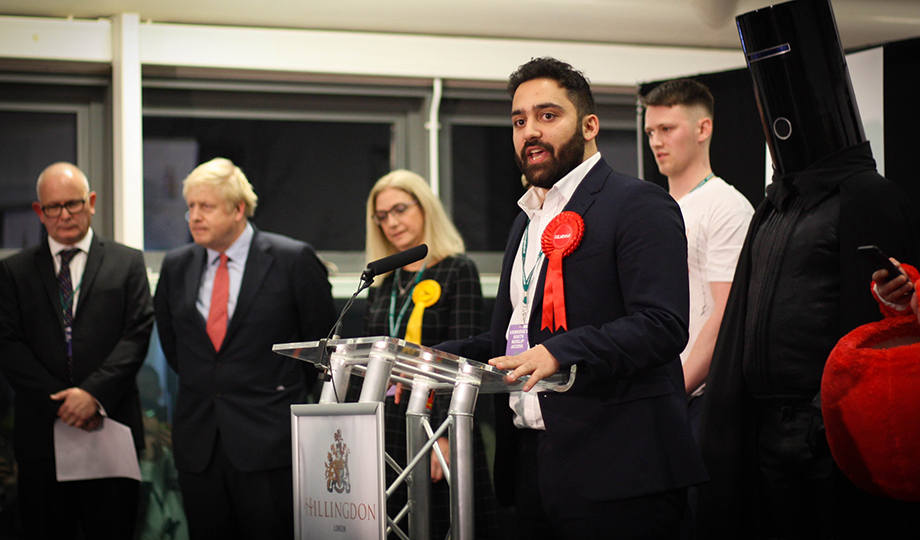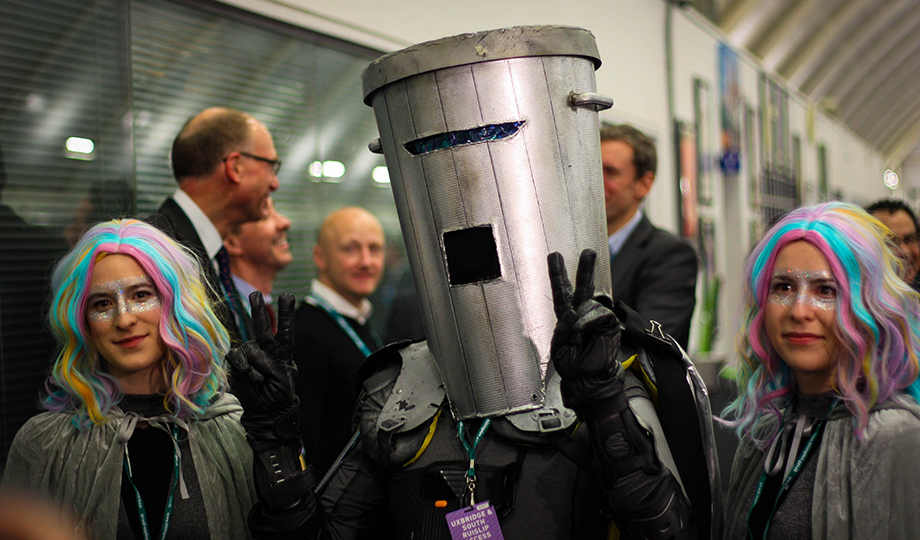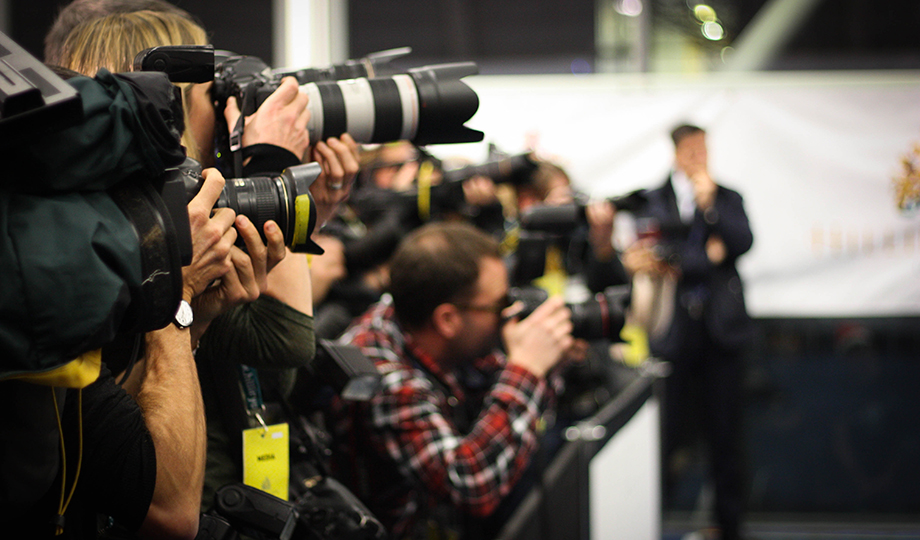Brunel University London fell under the full glare of the national and international media in the early hours of Friday morning as the hosts of a historic election count at which Prime Minister Boris Johnson held on to his seat, fending off the spirited challenge of recent Brunel graduate Ali Milani.
Rapt by the David and Goliath story that has unfolded in Uxbridge over the past few months, scores of journalists, including the BBC’s Andrew Marr and Sky’s Anna Botting, arrived at Brunel’s Indoor Athletics Centre to see if Milani, a former President of the Union of Brunel Students, could overturn the incumbent Johnson’s narrow majority and claim a victory for the ages.
But whilst Milani secured far more votes than his Liberal Democrat rival – and of the independent Count Binface (formerly Lord Buckethead) and the new Lord Buckethead (of the Monster Raving Loony Party) – he ultimately fell short, polling 18,141 votes to Johnson’s 25,351.
Conceding defeat, Milani, 25, said: “Obviously this is a disappointing result for the Labour Party. I’m disappointed we couldn’t give you change here in Uxbridge and South Ruislip, and nationally, but there have been thousands of volunteers and activists who have given up their days and their lives over the last couple of weeks for a better world – to fight climate change. To fight poverty. To fight inequality in this country.
He added: “I came to this country at the age of five, grew up in a council estate with a single parent who barely spoke a word of English, and it is only in the Labour movement, in your grips, that my story is even possible.”

Despite a spirited campaign, Mr Milani ultimately fell short of an upset
In the build-up to election night, Brunel featured in at least 1,200 news articles from around the world, as the media turned their attention to the West London constituency of Uxbridge and South Ruislip, where a seismic political upset appeared to be brewing.
Former Mayor of London Boris Johnson was first selected to stand for the Conservative Party in Uxbridge and South Ruislip in 2015, when he took the historically safe seat with 50.2% of the local vote. Since that time, he’s seen his lead slip thanks to increased support for the Labour Party, who required just over a 5% swing in the 2019 election to take the Prime Minister’s seat. If Johnson had lost his seat, he would have been the first Conservative Party leader to do so since 1906.

Count Binface received 69 votes.
The upset wasn’t to be, however, as Johnson kept his seat, on a night when the exit polls predicted a comfortable win for his party.
Claiming victory, Johnson said: “I don’t want to tempt fate because clearly lots of results are still coming in and we’re still on dealing with projections, but at this stage it does look as though this one nation Conservative government has been given a powerful new mandate to get Brexit done – and not just to get Brexit done, but to unite this country and to take it forward and to focus on the priorities of the British people.”
Mr Johnson claimed victory on a good night for his Conservative Party
Amongst the reporters in attendance were students from Brunel’s journalism course, who had the opportunity to quiz the BBC’s Andrew Marr, who has covered every election since 1983, on what made this election such a draw for the press.
“This one differs because its one of the most important I’ve covered,” Marr told Sophie Harris of IKB Insider, Brunel’s student news outlet.
“1983 was the beginning of the really big Thatcher revolution – she had her first government, she was a radical figure. It was a pivotal moment for Britain. I think this election is just as big.”
Despite the excitement though, covering the 2019 election wasn’t a pleasant experience for Marr: “It’s been horrible in terms of the atmosphere and social media, the viciousness, the poison, the slanders, the lies. I haven’t enjoyed it at all, and most of the people I’ve spoken to on the media side haven’t enjoyed it very much either. I used to love elections, I used to love the excitement, and the challenge, and the arguments. This time it feels to me like ash in the mouth, sour and bitter.”

Media from all over the world attended the Uxbridge and South Ruislip count
The votes from two other constituencies were also counted at Brunel: Hayes and Harlington’s MP John McDonnell, the Shadow Chancellor and Brunel alumnus, held on to the seat he’s represented since 1997, and David Simmonds was elected to the Conservative safe seat of Ruislip, Northwood and Pinner.
Brunel’s political scientists were in high demand in the run-up to the big night, in particular for their expertise in constituency campaigning and in the youth vote, appearing on screens and in articles around the world.
Speaking after the results were announced, Prof Justin Fisher, Head of Social and Political Sciences at Brunel, who was working as a behind-the-scenes analyst for ITN on election night, said: “It’s been terrific to see the world’s media here at Brunel throughout the campaign and, of course, on election night.
“The study of elections is a key part of our Politics degrees here at Brunel and we’re delighted that so many of our students have been here to witness first-hand such an exciting political story.”
For further information on Politics at Brunel, please visit brunel.ac.uk/politics-and-international-relations
Full results for Uxbridge and South Ruislip
-
Count Binface, Independent, 69
-
Lord Buckethead, Monster Raving Loony Party, 125
-
Norma Burke, Independent, 22
-
Geoffrey Courtenay, UKIP, 283
-
Joanne Humphreys, Liberal Democrat, 3,026
-
Boris Johnson, Conservatives, 25,351
-
Mark Kier, Green, 1,090
-
Ali Milani, Labour, 18,141
Reported by:
Tim Pilgrim,
Media Relations
+44 (0)1895 268965
tim.pilgrim@brunel.ac.uk